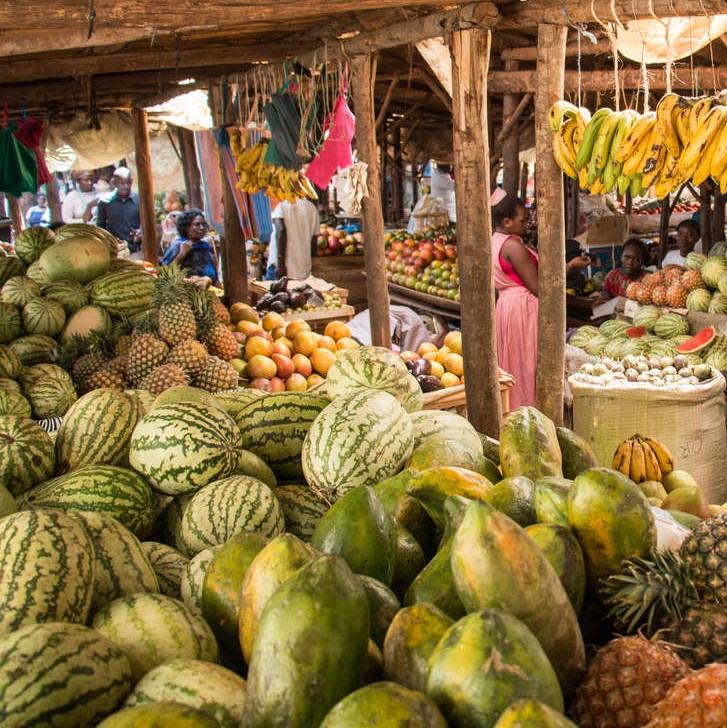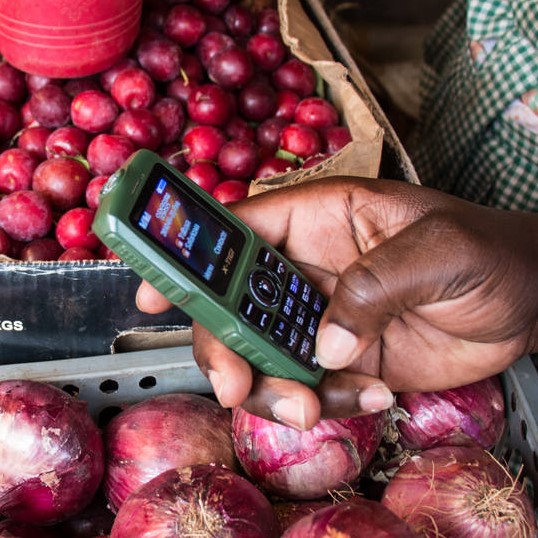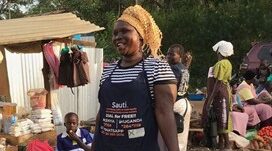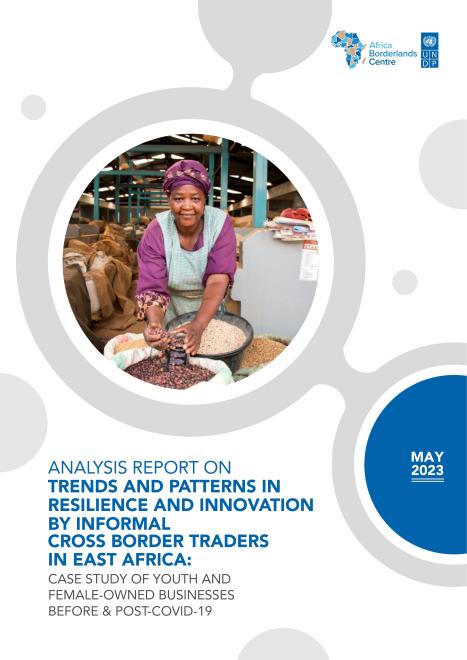Expanding Access to Trade Information in TanzaniaTrade and Market Information Platform
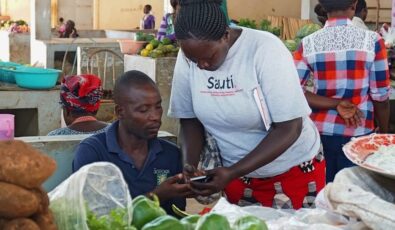
Having successfully implemented their mobile Trade and Market Information Platform, released in 2017, with more than 19,000 users to date, Sauti has since been able to expand the platform for use in Tanzania.
Prior to the platform’s expansion, Sauti’s field team travelled to border crossings between Tanzania and Kenya to further understand the border environment, engage partners, and conduct interviews with traders. Sauti’s launch to Tanzania has allowed for new users in “low-technology” areas to gain immediate access to accurate trade information, thus enabling safe, profitable, and legal trade practices to be exercised by women cross-border traders.
challenge
Cross-border trade is a significant contributor and major feature of East African economies; creating jobs, contributing to food and energy security, and alleviating poverty. However, many cross-border traders remain unaware of their rights, with limited knowledge surrounding trade information. There is an even greater barrier to information access in “low-technology” environments. Such challenges faced by cross-border traders have been highlighted in baseline data collection conducted by Sauti, indicating that prior to using Sauti, traders were spending 3.50 to 13 USD on calls to other traders/brokers to access trade and market information, and between 50 minutes and 5 hours for travelling to markets to access market information. Furthermore, as a result of an increase in phone ownership in the East African Community (EAC) in recent years, with more than 75% of EAC citizens owning a phone, access to information should be easier than ever. However, most of these are simple feature phones primarily used for texting or calls and cannot access online information resources.
In order to operate at their most efficient and profitable capacity, cross-border traders require greater access to market and trade information to be able to identify trade opportunities, comply with trade regulations, and negotiate favourable prices in foreign markets. Without such awareness and knowledge, cross-border traders, and in particular women, face greater vulnerability to corruption and harassment. It is therefore critical that women cross-border traders in “low-technology” contexts are granted access to this information to enhance trading practices and opportunities.
project
Sauti’s funding partnerships with LSE, TMEA, and the Google Impact Challenge has allowed for further expansion of its mobile Trade and Market Information Platform to Tanzania. The platform uses SMS, USSD, and, most recently, WhatsApp technology to close the digital information divide for women in trade across East Africa. Cross-border traders interact with the Sauti mobile platform via USSD or WhatsApp from smart or feature phones to access tailored trade and market information. The platform is fully integrated with regional market prices, border procedures, official tax rates, real-time exchange rate information, and bribery/harassment reporting features. This has been able to grant cross-border traders increased reassurance regarding both their trading and market knowledge as well as an enhanced sense of security within their economic activities.
During this project, local research and interviews were conducted to identify information sources and collect platform data. This includes Sauti’s partnership with LSE to conduct a baseline survey and customer discovery report to test the feasibility of mobile-based trade and market information platforms for women SMEs in Tanzania, as well as enhancing understanding of the current information needs of women traders. Further data collection was conducted in partnership with TMEA at the Taveta-Holili border to understand the impact of TMEA-supported trade facilitation and the impact of infrastructure programmes on Kenyan and Tanzanian women cross-border traders and entrepreneurs.
This has not only benefited cross-border traders with regards to safety and strengthening time-saving measures and profitability, but has also been particularly beneficial during the COVID-19 pandemic, enabling users to gain immediate access to accurate and up-to-date public health information.
results
The platform has benefited over 27,000 cross-border traders (male and female) and has successfully facilitated over 85,000 requests for trade and market information across the EAC.
The platform has helped traders negotiate better prices at the market and better forex rates with money changers; identify new markets and products within the EAC; diversify products and markets within the EAC; estimate their costs and potential profits; and save time and money by accessing trade and market information on the platform.
All sampled platform users have been able to grow their business revenue and sales as a result of using the platform; 68% have been able to identify new products to trade in; and 90% have identified new regional markets to trade in.
Traders using Sauti also report that they find it easier to navigate the formal border and understand what taxes and tariffs they need to pay. 76% of surveyed users said that since using Sauti they are more aware of the requirements for clearing their goods through the gazetted border, while 52% are more aware of the taxes applicable to their consignments.
